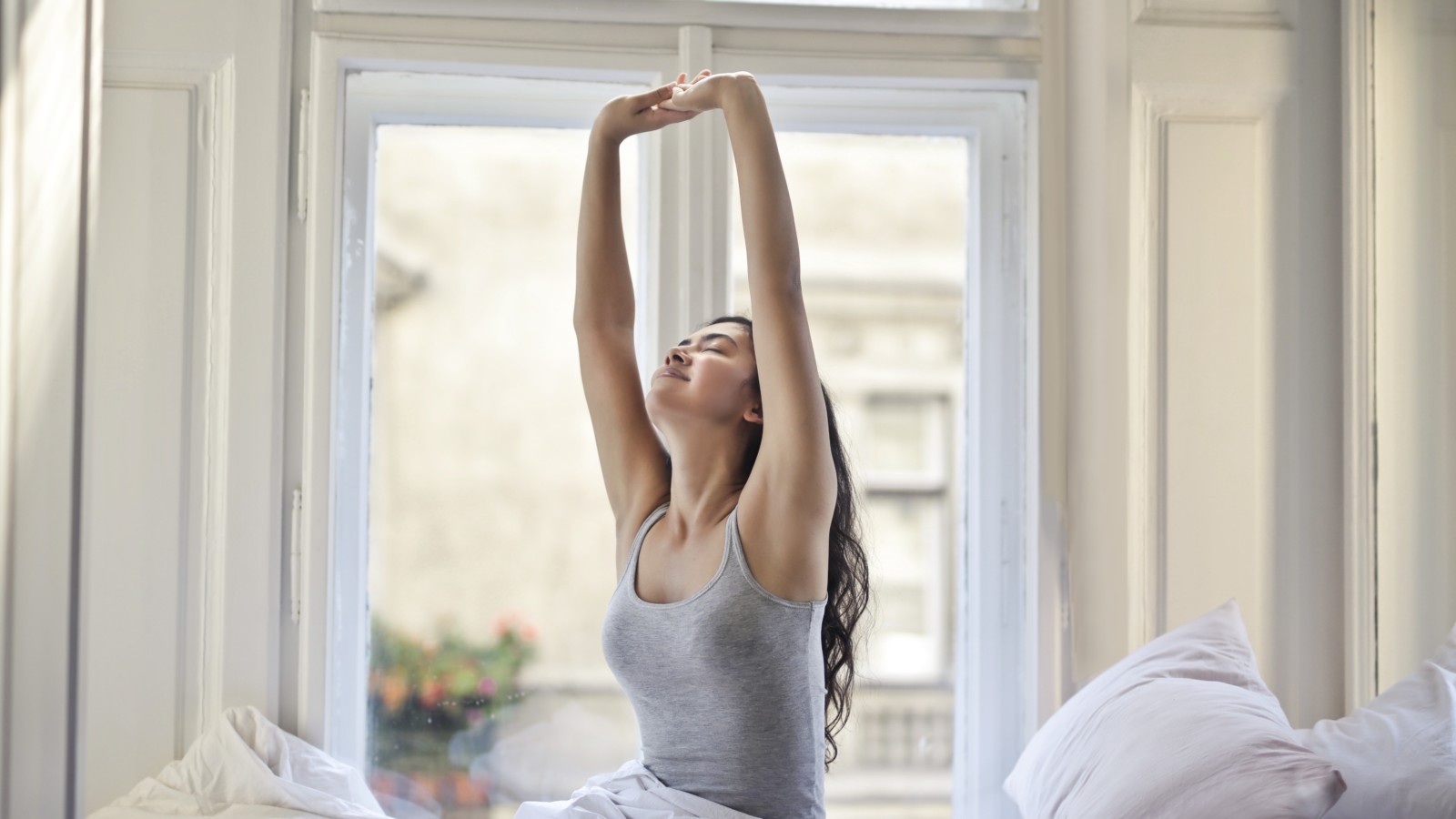Morning people: What a mystery they are. Having the audacity to start their day all perky while the rest of us limp out of bed after a knock-down drag-out fight with the snooze button. Pretty rude if you ask me.
But could they be on to something? Research suggests they are.
Let’s dig into why those early birds are setting themselves up for success (and how you can do the same).
Why You Need a Morning Routine
The expression “waking up on the wrong side of the bed” underscores the importance of a morning routine. How you start your morning sets the tone of your entire day. Benefits of a morning routine include:
1. Starting your day on your own terms. One of the hallmarks of anxiety and depression is feeling like you are not in control of your life. When you create a routine for yourself and stick to it, you empower yourself to reclaim control over how your day starts.
2. Building momentum. Starting your day with little victories creates a confidence snowball effect that will help you tackle the bigger challenges later in your day (more on this later).
3. Improving decision-making and reducing stress. Too many decisions leads to stress, a phenomenon known as The Paradox of Choice, and also hurts your ability to make future decisions. Starting your day with a comfortable and repetitive sequence of activities means you can save the decision-making for when you need it most.
4. Establishing healthy habits. We all know how hard habits are to break. Following a morning routine is effectively creating a habit. Eventually, you’ll be on autopilot with those stretches, affirmations, and nutritious breakfasts.
That’s all great…in theory. But how do I stop being a drowsy, irritable, IV-full-of-coffee-toting shell of a person I am so used to being? I’m glad you asked.
Set Yourself Up for Success
This really isn’t about waking up early, it’s about waking up correctly. There are two major ways that we sabotage ourselves when it comes to waking up:
Step away from the snooze button: Mel Robbins is an expert in many things, one of which is waking up. As Mel explains, hitting the snooze button disrupts our natural sleep cycle and actually puts your brain back to sleep for a few hours (even if you are physically awake). The key to keeping your brain operating a peak performance is waking up the first time around. It SUCKS for about 30 seconds, but you’ll be glad you did it.
I swear, if you touch that phone…: You know the best way hijack your entire day? Going down a social media wormhole or checking your email before getting out of bed and finding “emergencies” that you need to handle “right now.” You set the terms for how your day starts (remember what we said about depression/anxiety and a lack of control). Do not let others (or your phone) decide for you.
Some Ideas for Getting Started
What activities make up a good morning routine? That’s up to you! Try a few different activities and see which fit you best. Here are some suggestions:
Make your bed: Take it from a Navy SEAL, making your bed is a great way to start the day. As Admiral William H. McRaven explains, making your bed is a small, momentum-building task. If you make your bed, you’ve accomplished something before the day even starts and will feel more inspired to conquer the next task.
Exercise: Tell me if this is you: You start your day with every intention to exercise after work but when the time comes you are just so. damn. tired. Exercising in the morning not only gives you a kickstart of natural energy, it’s also one less thing you have to do at the end of an exhausting day. Plus, it’s a really good feeling going about your day and knowing you’ve already worked out. (Pro Tip: Sleep in your gym clothes. Sometimes getting dressed is half the battle).
Journal: There’s something about putting pen to paper. Writing down what your are grateful for, affirmations, or your intentions for the day helps you think about (and manifest) those things explicitly rather than in abstracts.
Practice Mindfulness: The health benefits of mindfulness have been well documented: from heart health, to pain reduction, to Alzheimer’s prevention. This one is the simplest, but also the hardest to master. Try using apps like Calm or Headspace to guide your practice. (Pro Tip: Do not do this is in bed. You are 100% guaranteed to fall back asleep).
Pray: If you are a person of faith, taking some quiet time to pray or read a few pages of scripture is a great centering exercise and gives you a framework to approach the rest of your day.
If you are looking for more ideas, you can also check out The Miracle Morning, a book (and feature film) which explore the “perfect” morning routine and the inspiring people who follow it.
There you have it! I hope you’re feeling more energized and prepared to start the day off right. Please feel free to comment with any wisdom of your own!
Rise and shine,
Ryan


